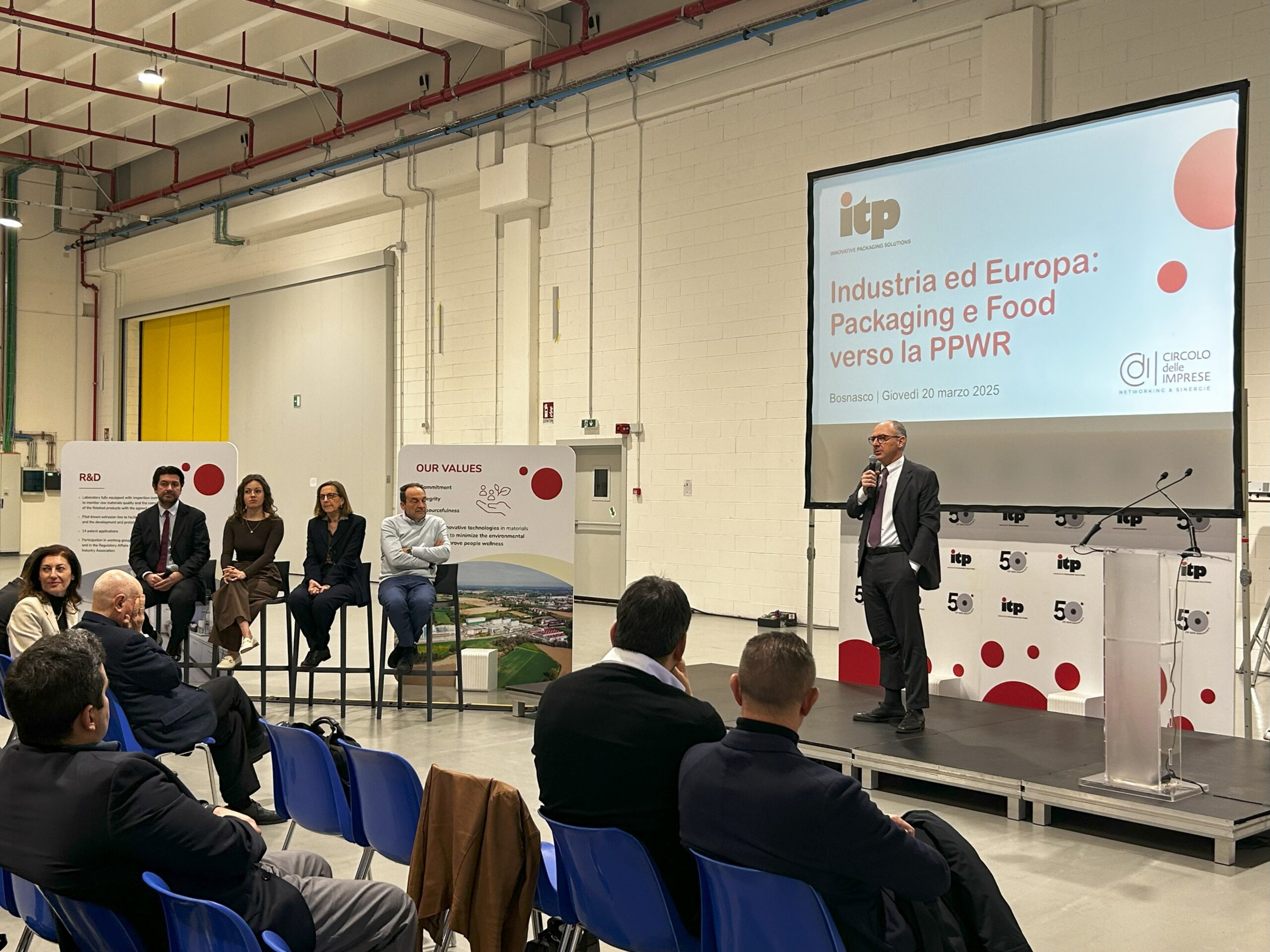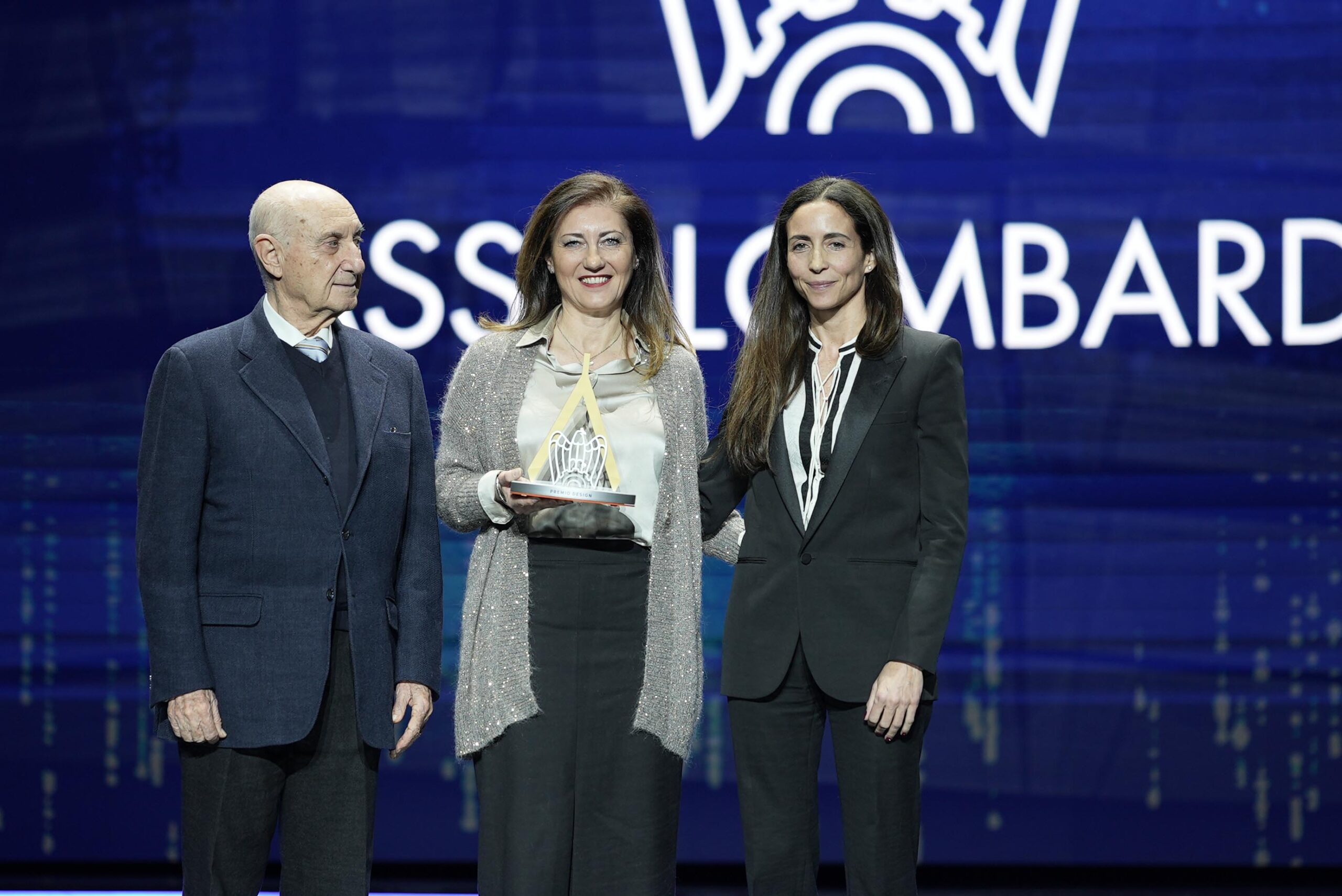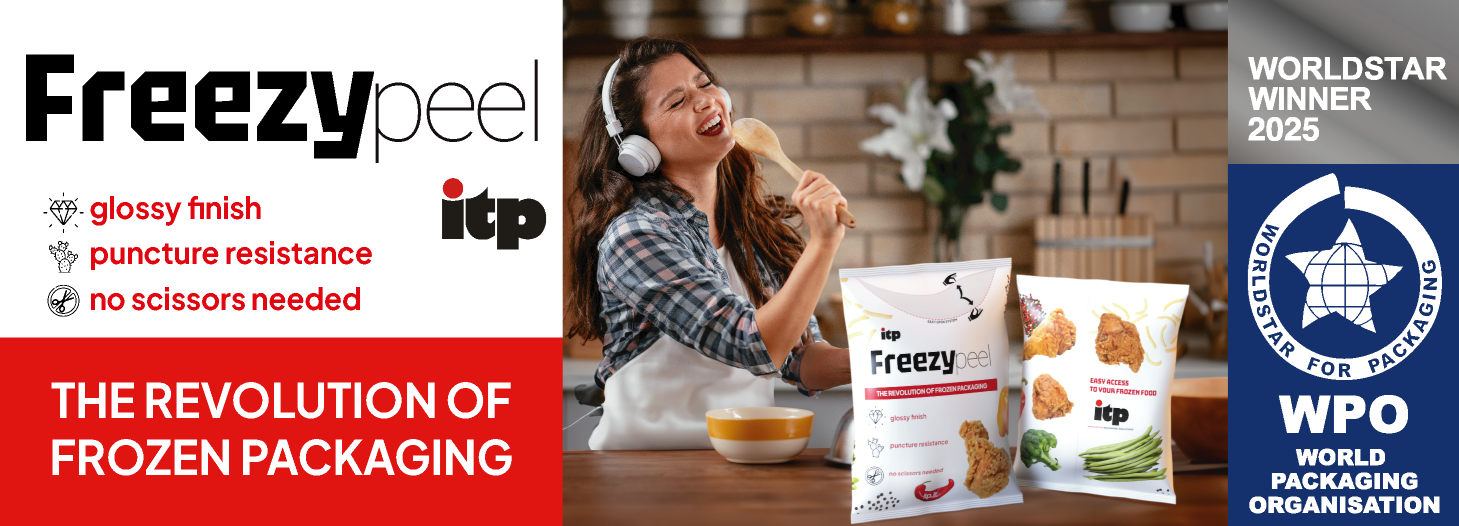Industry and Europe: Packaging and Food towards PPWR

On March 20, 2025, ITP hosted an event – organized in collaboration with Circolo delle Imprese – with the aim of exploring the challenges and opportunities for the packaging and food sectors in relation to the European PPWR regulation. The meeting featured a discussion between experts from the packaging, food industry, and retail sectors, with the aim of defining concrete actions for a sustainable future, addressing crucial issues such as the use of recycled materials and food waste reduction.
Sustainable Packaging: Challenges and Innovation according to ITP
Massimo Centonze, CEO of ITP, opened the meeting by thanking the guests and emphasizing the presence of the entire supply chain, made up of Italian excellences in packaging, food, packaging machinery, retail and recycling. These sectors are complementary and need to be preserved, as proper packaging is essential for exporting food excellence, ensuring shelf life and reducing food waste. Centonze also drew attention to the evolution of the discussion on PPWR, which was recently approved but still has critical points related to some 50 delegated acts, where the participation of companies in the sector is needed.
Centonze noted that the international scenario has changed since June 2023. Trump’s decision to cancel the ban on plastic straws has led to a reassessment of plastics and a slowdown in the ideological Green Deal, prompting the European Union to focus more on business competitiveness. Plastics companies are ready for the challenge, as, even before the Green Deal, the industry has been taking steps to reduce the weight of packaging.
However, challenges remain related to the use of PCR for food packaging, reuse of materials, and harmonization of packaging labeling. Centonze stressed that comparisons must be based on objective data, such as detailed EPD studies conducted by UNIONPLAST. He also mentioned the importance of monitoring the new EU Waste Framework Directive, which aims to reduce food waste through packaging.
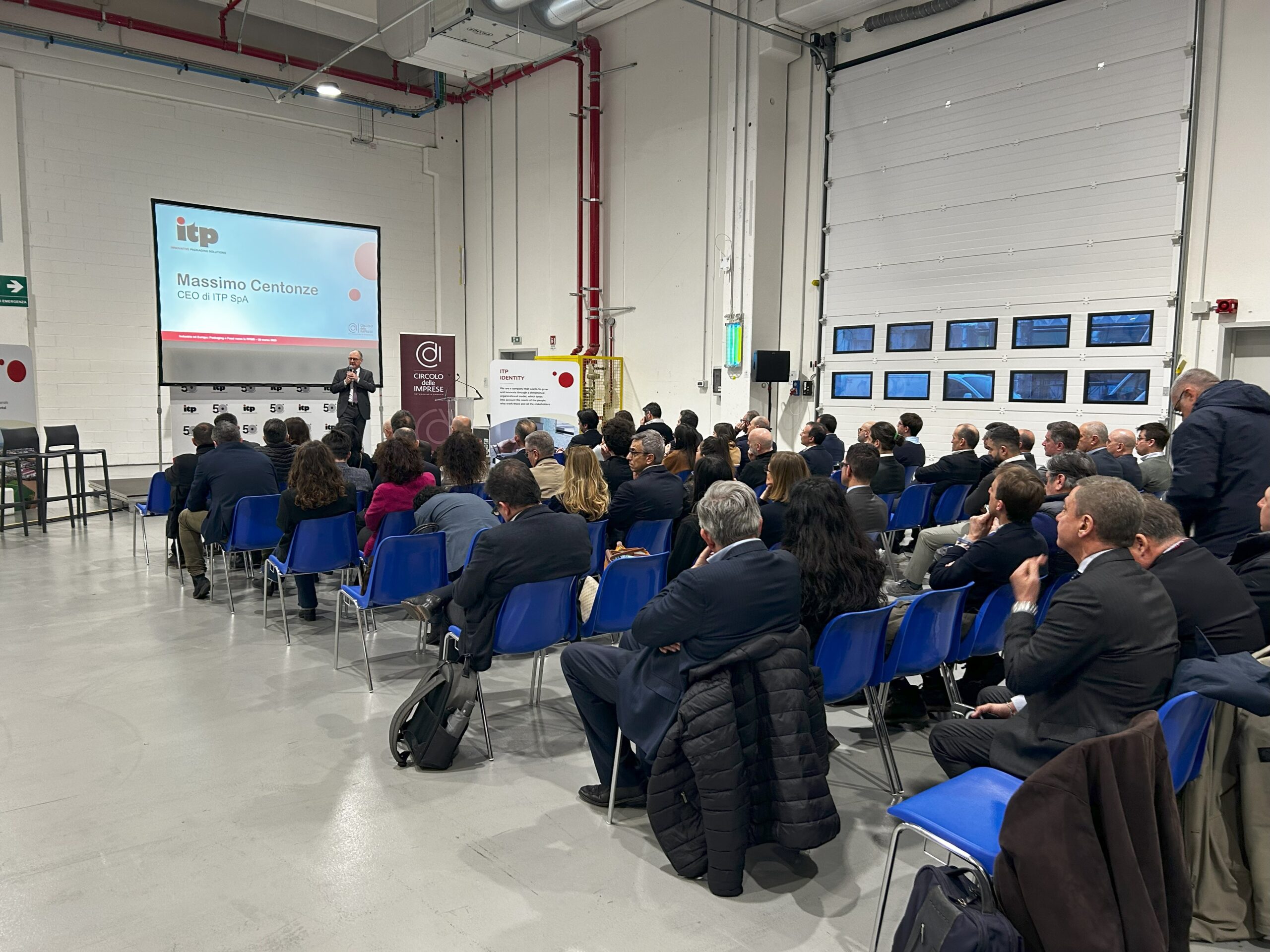
Melinda: restricting plastic in packaging penalizes quality and competitiveness
Jasmine Chini (Melinda Sca Consortium) highlighted the difficulties in the fruit and vegetable sector regarding the restriction on the use of plastic for packages under 1.5 kg. This restriction contrasts with the growing demand for packaged products and results in additional costs not recognized by retailers, as well as reducing the quality and shelf life of products. Switching to alternative materials slows down the productivity of machinery and results in a significant increase in costs, including those for compostable stickers (+50-60%). In addition, the need to diversify the packaging for export further complicates competitiveness.
Melinda, along with Assomela and Freshfel, has been closely following the evolution of PPWR and has been investing in sustainable solutions for years. It has undertaken studies on Carbon Footprint and EPD and aims to evaluate the LCA of packaging, pointing out that, in some cases, plastic turns out to have a lower environmental impact than other materials.
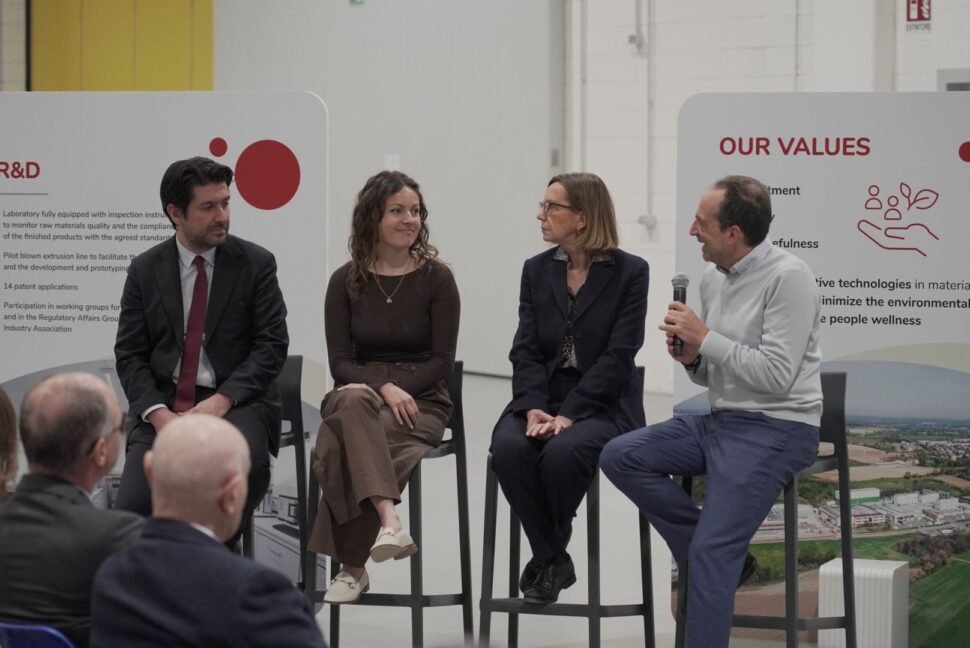
Ferrari and Innovation in Sustainable Packaging: Challenges and Solutions in
Laura Ferrari, president of Ferrari Giovanni Industria Casearia Spa, stresses the importance of sharing experiences throughout the supply chain and collaborating with universities to develop innovative solutions. The company has adopted recyclable packaging lines and actively participates in Assolatte initiatives to raise awareness of recycling and good practices. There is no absolute “best” packaging, as it depends on the product, as demonstrated in an LCA project on hard cheeses, where packaging only affects 2-3%. However, packaging is crucial to ensure the wholesomeness of cheese and reduce food waste, in accordance with European directives.
Ferrari also highlights the importance of packaging in the export of PDO products, as it preserves quality and organoleptic characteristics. When discussing the impact of packaging, it is crucial to rely on scientific data. A topic that is still open is the impact of recycled plastic packaging, where the question arises of how to manage costs between companies, trade and consumers, finding sustainable solutions that do not damage the economic balance of the sector.
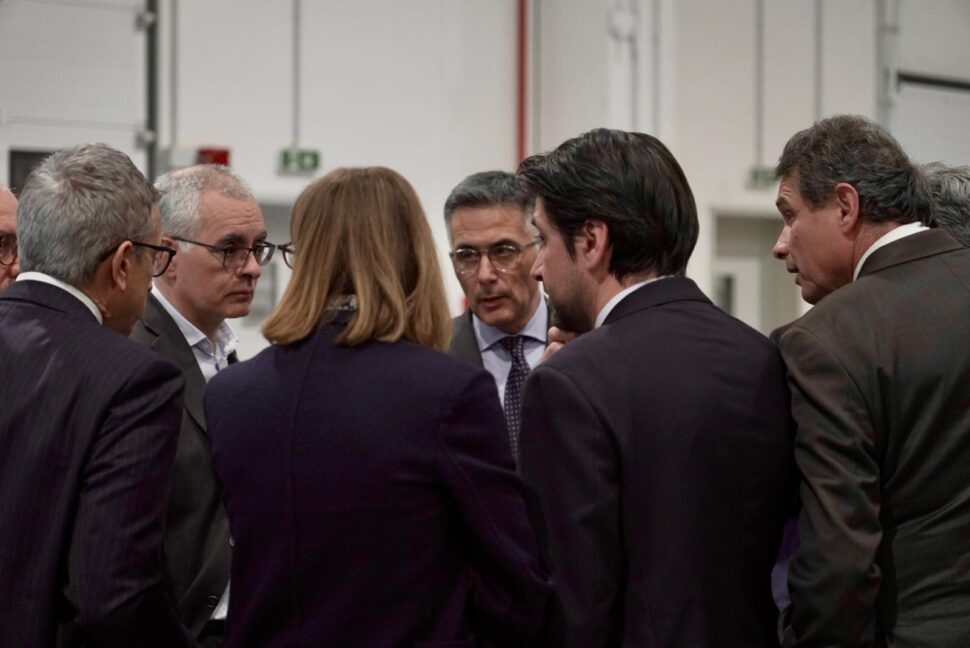
Impacts for Retail and Esselunga’s Vision
Fabio Fiorelli, purchasing manager for packaging at Esselunga, stresses the importance of the new regulation and its effects on large retailers. For years, Esselunga has been investing in more sustainable packaging solutions, favoring recyclable materials and developing compostable alternatives for its products.
The company is constantly working to balance innovation and efficiency with reduced environmental impact, while ensuring quality and safety for consumers. However, the implementation of new regulations poses significant challenges, requiring careful study of alternatives and active collaboration with suppliers and institutions to find solutions that are sustainable not only environmentally, but also economically and logistically.
The goal is to combine the ecological transition with the need to maintain competitiveness and functionality in the retail sector, so that sustainable packaging becomes a concrete added value for companies and consumers.
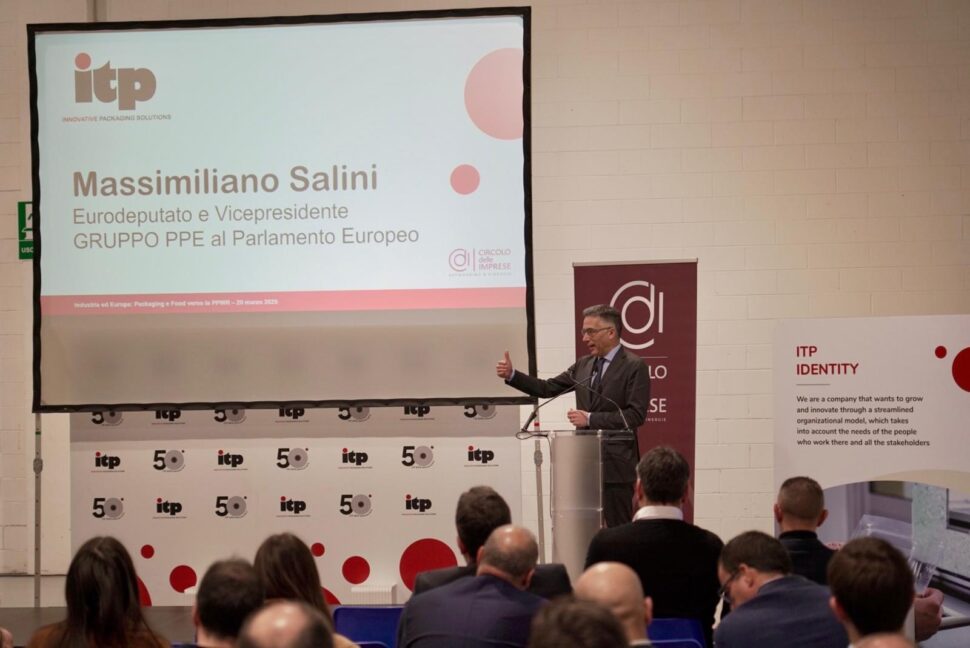
Hon. Salini: “Packaging regulations, we need more transparency”
Closing remarks by the evening’s guest speaker, Massimiliano Salini – MEP and Vice-President EPP GROUP in the European Parliament, who already brought to ITP in 2023 his contribution on the topic of PPWR.
The MEP pointed out that the European packaging regulation was a case of bad legislation, initially very penalizing for industry. Thanks to a strong mobilization, especially from Italy, amendments and derogations were obtained, but uncertainties persist on the regulatory definition of single-use plastic packaging, with the risk of new restrictions. This highlights the need for companies to take constant action in dialogue with institutions to protect competitiveness and jobs.
Moreover, the fragmentation of national recycling and reuse regulations complicates packaging management, making harmonization at the European level urgent. The lack of regulatory consistency creates obstacles for businesses and could curb innovation in the sector.
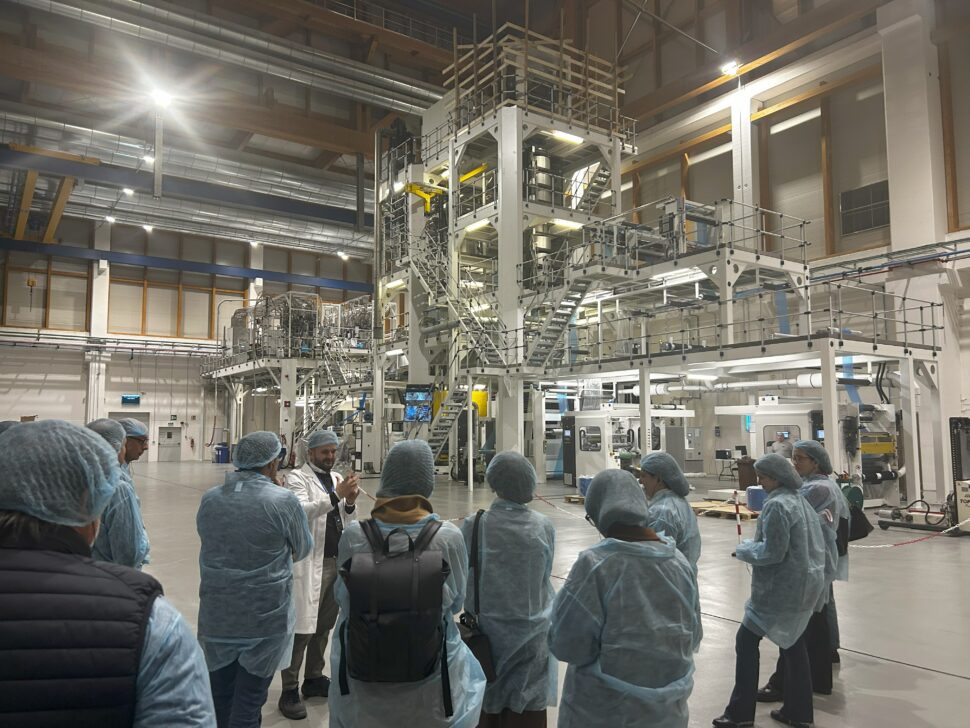
Connecting the Supply Chain to face PPWR Challenges
Paola Centonze, ITP’s Sustainability and Communications Manager, stressed the importance of this event to raise doubts and concerns about the European Packaging and Packaging Waste Regulation, a crucial issue for the sector. She also highlighted the opportunity to bring together different companies from the supply chain to create healthy and productive networking that can provide new information and shared solutions to address uncertainties related to the delegated acts of the regulation.
